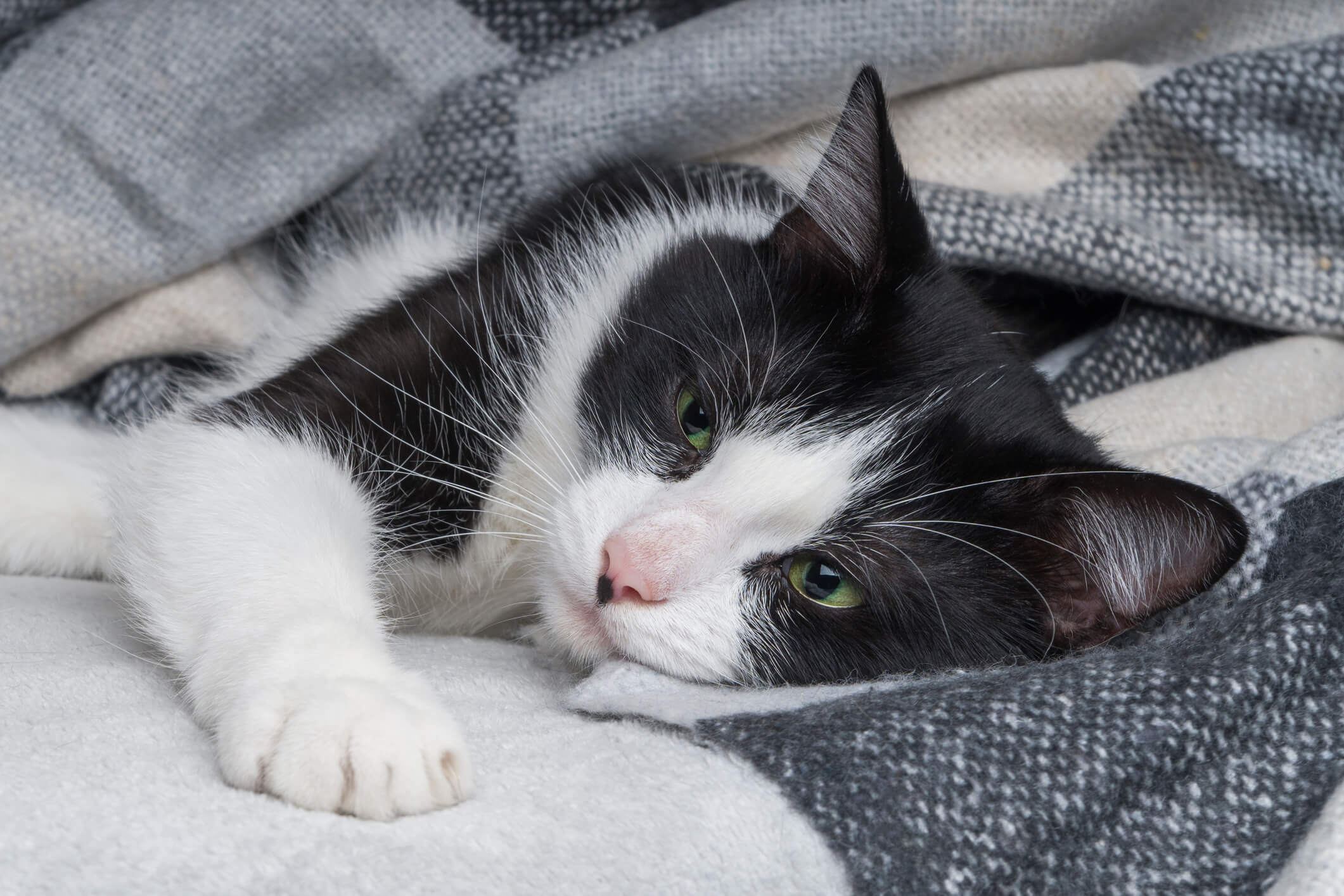
The Connection Between Lymphoma and Your Cat's GI Problems
Cats inevitably leave unpleasant messes for their owners to clean up. But if discovering cat puke or diarrhea has become part of your daily routine, something isn’t right. More often than not, cat owners try to remedy GI problems without stopping to think whether an upset stomach could be a symptom of a more serious underlying issue.
Frequent GI problems in cats could indicate the presence of alimentary lymphoma. Here’s what you should know about this form of cat cancer.
The definition of lymphoma
Lymphoma is a common type of cancer in cats that originates in the lymphatic system. Lymph nodes are located throughout the entire body and circulate fluids that remove toxic materials like viruses. Not only do lymph fluids rid your cat’s body of viruses and waste products, but they deliver oxygen and nutrients to cells, too.
Since cats have lymph nodes all over their bodies, lymphoma is classified as a systemic cancer. This means that malignant white blood cells aren’t contained to one central tumor. Instead, the cancer can circulate throughout the lymphatic system. Lymphoma can crop up anywhere, and with cats in particular, the cancer may originate in unusual places like the sinuses or eyes. It differs from one feline to the next.
Many different types of lymphoma exist among cats, but one of the most common is called alimentary lymphoma. The starting location of this cancer varies, but cats afflicted with alimentary lymphoma often experience gastrointestinal problems. Cat owners might not notice the presence of cancer right away because GI problems are overlooked as no big deal. However, if your kitty regularly suffers from an upset stomach, you should speak with a vet, because the underlying cause might be much more serious than you think.

Symptoms to watch out for
No matter which type they have, nearly all cats with lymphoma display a few common symptoms. These usually include loss of appetite and weight loss. Many other chronic illnesses share these symptoms, so a professional examination is necessary in order to receive a proper diagnosis. Only then can you move forward with treatment.
Alimentary lymphoma presents its own set of unique symptoms, though. Since this type of lymphoma primarily affects the GI tract, an upset stomach is the number-one indicator that something’s amiss. Cat owners should look out for recurring bouts of nausea and vomiting. Cats might eat something that doesn’t agree with them every once in a while, but if they’re constantly getting sick, it’s definitely cause for concern.
Cats with alimentary lymphoma also have abnormal bowel movements. Symptoms could range from struggling to pass stool to uncontrollable diarrhea. Again, constipation and diarrhea will probably occur at some point in your cat’s life. However, it shouldn’t happen on a regular basis. Owners will know something’s wrong right away if they find black, tarry stool or blood in the litter box.
Lethargy can also indicate the presence of alimentary lymphoma in cats. Lethargy is characterized by low energy levels and a sudden change in behavior. Young kitties are usually exploding with energy, so a sudden lack of interest in playtime is particularly concerning. In older cats, owners might mistake lethargy for laziness. Lethargy is a symptom that overlaps with many other chronic diseases, which is why you should bring your cat to the vet to determine whether or not alimentary lymphoma is to blame.
How vets treat lymphoma in cats
Surgically removing tumors might sound like the obvious solution to cancer. Unfortunately, lymphoma won’t go away simply by removing a cluster of cancerous cells. The lymphatic system circulates throughout your cat’s entire body, meaning the cancer usually can’t be pinpointed to a specific location. The nature of lymphoma makes it more difficult to treat compared to other forms of cancer.
The most effective treatment for lymphoma is chemotherapy. Your vet will refer you to an oncologist who will administer a blend of chemo drugs in their clinic. The intensity of this treatment will depend on the type of lymphoma and its developmental stage. Luckily, chemotherapy is known to provide rapid relief from symptoms in cats and doesn’t always affect them as negatively as it does in humans.
Your vet may also prescribe strong pain medications to help manage your cat’s symptoms. Medication won’t cure lymphoma, but it might improve quality of life for your cat. How long cats are able to live with lymphoma will depend on the severity of their condition, but pain medications can relieve some of their discomfort until it’s time to let them go.
Cancer is one of the scariest diagnoses a cat owner can receive—especially lymphoma. The cause is unknown in many cases, which can make you feel powerless to do anything about it. The best thing any cat owner can do is look out for the warning signs of lymphoma like GI problems. Early detection is key to winning the battle against lymphoma and extending your feline’s life.


